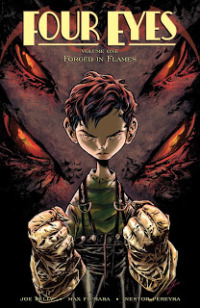The Patriot Attack by Kyle Mills
 Monday, September 28, 2015 at 10:56AM
Monday, September 28, 2015 at 10:56AM 
Published by Grand Central Publishing on September 29, 2015
The Patriot Attack -- excuse me, Robert Ludlum's The Patriot Attack -- wasn't written by the long-deceased Ludlum. Despite the appearance of the name "Jason Bourne" in the cover's largest font, this isn't a Jason Bourne novel. If you don't develop unfulfilled expectations based on the publisher's questionable marketing tactics, you'll find a reasonably entertaining Covert One novel written by Kyle Mills, one of the more reliable authors in the Ludlum factory.
The premise is refreshing, in that it turns away from tired stories about Middle Eastern terrorists and focuses on a potential war between China and Japan which, if initiated by China, might require the United States to honor treaty obligations by coming to Japan's defense. The title doesn't have much to do with the story but the word "Patriot" apparently sells books so there it is.
The story begins with a mad scientist's "What have I done?" moment in Japan. The Patriot Attack then turns to the present as Jon Smith dodges bullets and crossbow bolts to recover a package. The package leads to evidence that someone in Japan is about to unleash a weapon that risks the destruction of all life on the planet. As one of the characters notes, it's the sort of doomsday weapon that should never be developed, much less unleashed.
The novel takes a sophisticated view of China's internal problems and the dilemma that the United States would face if China and Japan were at war. America is economically dependent on China, both as a manufacturer of consumer goods for American vendors and as a lender that holds a huge amount of American debt. America also has strong economic ties with Japan, not to mention a defense treaty. China arguably has an incentive to attack Japan as a means of winning the support of an increasingly restless population, although China has little incentive to take on the American military or to lose the income it receives from American businesses. On the other hand, Japan would be trounced if it started a war with China ... unless, of course, it had a convenient doomsday weapon and a madman who was willing to launch it.
Series regular Randi Russell is given a prominent role while Fred Klein is relegated to infrequent appearances (which is fine since he's the kind of wooden character who speaks without moving his lips). The story is fanciful but it is told in a credible way that builds excitement. The ending is easier and more abrupt than Ludlum himself would have delivered, but as a factory-based novel, this one isn't bad. And, to its credit, the Ludlum factory doesn't outsource labor to China.
RECOMMENDED



